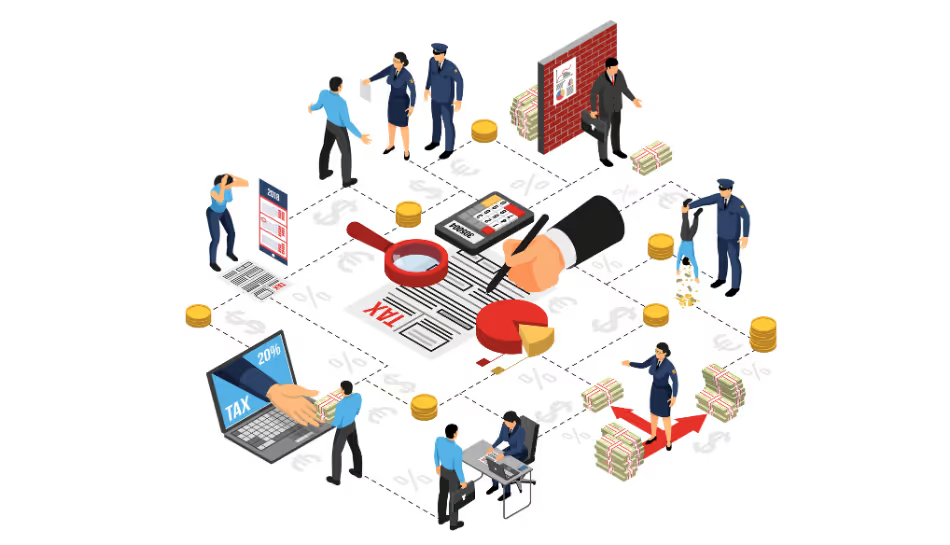
In today’s business environment, complying with tax laws is not just a legal obligation but also a way to maintain credibility and avoid costly penalties. Modern financial accounting software goes far beyond basic bookkeeping, it offers tools that help organisations meet compliance requirements efficiently.
Before selecting a solution, it’s essential to understand what are the features of accounting software that make tax compliance simpler and more accurate.
Why Compliance Matters in Accounting
Businesses operate under strict tax regulations, whether it’s income tax, GST, VAT, or corporate reporting rules. Legal action, penalties, and harm to one's reputation may result from noncompliance. Using the right accounting software ensures that transactions are recorded accurately, reports are generated on time, and filings meet all statutory requirements.
Key Features of Accounting Software for Tax Compliance
When considering features of accounting tools that aid in compliance, look for solutions that provide automation, accuracy, and reporting capabilities. Here are the most important ones:
- Automated Tax Calculations
One of the standout features of accounting software is automated tax calculation. The system applies the correct tax rates to each transaction, reducing the risk of human error. Whether it’s GST in India or sales tax in other countries, the software updates rates automatically based on government notifications. - Multi-Tax Support
Businesses operating in different states or countries often deal with multiple tax structures. Advanced accounting systems support multiple tax types and jurisdictions, ensuring compliance no matter where the transaction occurs. - Real-Time Data Accuracy
Accurate and timely financial data is crucial for tax reporting. Accounting software keeps ledgers, invoices, and expense records updated in real time, making it easier to prepare tax returns without last-minute scrambling. - Built-In Compliance Reports
High-quality financial accounting software includes ready-to-use tax reports, such as GST returns, TDS summaries, and profit-and-loss statements. These reports are formatted according to regulatory guidelines, which means they can be filed directly without additional manual formatting. - Audit Trail and Data Security
An essential feature of accounting systems is the ability to maintain an audit trail. This log records every transaction entry, modification, and deletion, making it easy to trace discrepancies during audits. Data encryption and secure backups further protect sensitive financial information. - Integration with E-Filing Portals
Many modern solutions integrate directly with government tax portals, enabling e-filing of returns from within the software. This not only saves time but also reduces the chances of errors during manual data entry. - Multi-Currency and International Compliance
For businesses dealing with imports, exports, or foreign clients, software with multi-currency support ensures compliance with international tax laws and reporting standards like IFRS. - Customisable Tax Rules
Certain industries have special tax treatments. Accounting software that allows custom tax rule creation makes it easier to adapt to these requirements without complex workarounds. - Periodic Compliance Reminders
Missed deadlines can lead to late fees and penalties. Built-in reminders help finance teams track due dates for tax submissions, advance tax payments, and compliance renewals.
Example: Tax Compliance in Action
Consider a medium-sized retail business using cloud-based accounting software. The system automatically calculates GST on sales, generates return-ready reports, and sends reminders before filing deadlines. When tax rates change, the software updates them without manual input. During an audit, the built-in audit trail provides transaction history, making the process smooth and stress-free.
Long-Term Benefits of Using Compliance-Focused Accounting Software
Beyond immediate tax filing needs, compliance-ready accounting software offers:
- Reduced risk of penalties and interest
- Increased operational efficiency through automation
- Improved accuracy and transparency in reporting
- Easier audits and reconciliations
- Better decision-making with reliable financial data
Final Thoughts
Compliance with tax laws is a continuous process, not a once-a-year task. Choosing a financial accounting system with the right features of accounting software can make this process seamless and stress-free. From automated tax calculations to secure audit trails, these tools ensure that businesses remain on the right side of the law while saving time and resources.
In a world where regulations change frequently, the right accounting solution is not just a convenience, it’s a necessity for sustainable growth and legal peace of mind.

